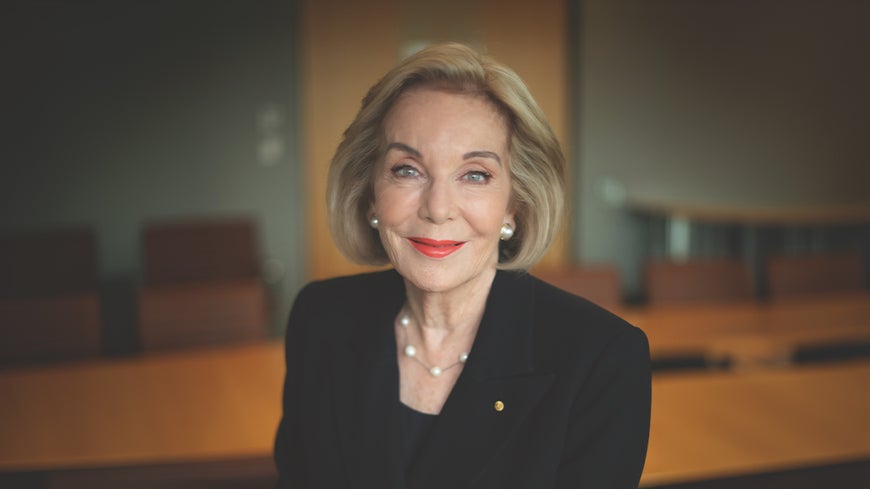How Ita Buttrose helped to save her uncle's vision

Written by Leigh Reinhold for Australian Seniors
Watching her father go blind from macular degeneration, Ita Buttrose, 82, could spot the warning signs when her uncle Gerald Buttrose wrote to her about “the wavy lines on the road”.
“I said to him, 'What are you doing? Stop driving at once!'” says Ita, who advised her uncle, in his 80s at the time, to visit a retina specialist. “I said, ‘Do you want to go blind?’. Well, I frightened the hell out of him and he saw an ophthalmic surgeon and his sight was saved.”
Gerald, who recently self-published his second romance novel and will turn 101 in August, saw three of his six siblings go blind from macular degeneration. “Only Uncle Gerald’s vision was saved because we have the technology to be able to do that now,” says Ita. “He has had more than 140 eye injections and he says you only feel the slightest pin prick. And he says it’s all worth it because he can see.”
Looking for the symptoms of macular degeneration
Ita has yearly eye checks and believes every Australian should know macular degeneration is the leading cause of vision loss in the country, affecting one in seven people over the age of 50. “Everyone should look out for signs,” she says. “If you can’t read clearly or easily, it’s worth getting checked out.” Seeing her father Charles, a celebrated war correspondent and editor, go blind was one part of a “terrible health trifecta” for him, as he also had vascular dementia and hearing loss.
“It is very difficult watching someone you love battle dementia,” says Ita, her father’s principal carer during his decade-long struggle with the incurable illness, before his death in 1999. “The most important thing to remember is the person with dementia is still a person. People with dementia will say they feel excluded from family events, from conversations, from decision making. And that’s just wrong because, yes, it does change your life, but you are still capable of doing lots of things.”
Ita in her own words
How giving back has enriched her own world as well as the lives of others.
My mother brought me and my brothers up to serve the community.
It’s the way I have been taught to live and I think if you can give back, if you can make a difference then you should have a go doing it. It absolutely makes your life richer because, if you think you’ve got a problem, you have only got to hear what other people are facing to make you think, I don’t really have a problem at all.
I think you need a purpose and something to look forward to when you get up in the morning.
I go to the gym three or four times a week, and I follow the program we recommend at the Macular Disease Foundation. It’s really quite simple – don’t smoke, avoid being overweight, do some exercise on a regular basis. Eat a healthy well-balanced diet, limit your intake of fats, eat fish two to three times a week, salmon’s perfect. Eat dark green leafy vegetables and fresh fruit. Plus a handful of nuts weekly. And put your sunglasses on when you go out in the sun. The same rules apply for dementia too. We know with dementia, what’s good for your heart is good for your brain.
I may have finished my five-year term as chair of the ABC in March but I will never consider myself to be retired.
I’m very happy I was able to make a contribution to the ABC. It’s a fantastic organisation and I have done my best for it. Now I’m getting back to doing other things. Dementia Australia and the Macular Disease Foundation have lots for me to do and I’m doing some other health projects – I am really genuinely interested in health. And I’m probably looking to write another book.
I find it hard to believe I am 82.
Sometimes I think, oh god, I’m quite old really. I’ve been here quite a while. People talk about something that might have happened in the 50s and you say, ‘Oh no, that isn’t right, this is what happened’. They ask how do you know? And I say because I was there! Most of my senior relatives made it well into their 90s, so, yes, I come from good stock. You just keep your fingers crossed.
Get the latest take on trending issues, smart tips to boost your financial goals, or a fresh way to indulge in everyday joys, all from the comfort of your favourite reading spot with DARE magazine from Australian Seniors.
DARE also features exclusive stories from some of Australia’s favourite personalities.
8 Aug 2024